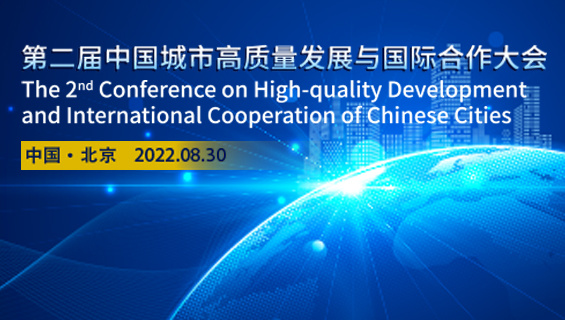Chinese President Xi Jinping pointed out that China always upholds multilateralism and supports the UN in playing an active role in international affairs. The Chinese side appreciates the UN Secretary-General's efforts to promote international cooperation in addressing climate change, and has actively pushed for positive outcomes of the UN Climate Action Summit.
The UN Secretary-General António Guterres said that the world is facing insufficient willingness to promote multilateralism and follow rule of law. The UN appreciates China's long-term support for the UN, and speaks highly of China's important contributions to addressing climate change and advancing sustainable development. The UN hopes to see China displaying more leadership in international affairs, and is willing to provide the most comprehensive support and cooperation.
This was what Chinese President Xi Jinping told in Osaka, Japan on June 28, 2019. The message from the meeting is crystal clear: UN highly appreciates the strong support from and the big contribution by China in fight against climate change which is extremely high on the agenda of the UN.
China has long been actively engaged in international climate cooperation since the UN formally started multilateral negotiation on a global climate treaty in 1990. The last nearly 3 decades saw an increasingly important role of China in international climate cooperation. Particularly, the 2015 Paris climate conference marked the beginning of China’s transition from a participant to a leader in global climate governance although the transition may take 10 years or even longer.
How to understand China’s leadership role in current global climate governance?
Firstly, China is more willing to put forward new ideas and concepts in climate debate than ever before and China’s propositions are progressively welcomed and valued by other parties, including that tackling climate change should aim at forging a community of shared future for humankind, promoting ecological civilization; that developing countries’ fundamental rights to development should be protected in accordance with the principles of the common but differentiated responsibilities; and that climate justice should be upheld.
Secondly, China has shown its impressive ability to break gridlock in climate negotiations at crucial moments through coordination. China has facilitated developed countries and developing countries to forge compromises and reach mutual understanding on critical issues. For example, before the 2015 Paris Conference, China had signed two joint announcements on climate change with the United States and another with France. In these announcements consensus was reached on several key issues, including the principle of common but differentiated responsibilities and transparency, thus removing major obstacles in international negotiation. As a result, the way for the historic success of the Paris Agreement was paved. Equally important were the frequent face-to-face meetings between Xie Zhenhua, head of the Chinese delegation, with other leaders like Laurent Fabius, Ban Ki-moon and John Kerry, and the suggestions raised by him on behalf of China. In 2017,the US announcement of withdrawal from Paris Agreement put Paris Agreement and UN in a very dangerous position. The world turned the eye on China. Without any hesitation, China reiterated its strong support to the Paris Agreement and its commitment of Nationally Determined Contribution (NDC) and forged a climate alliance with EU and other parties concerned.
Thirdly, China is increasingly leading by example in pursuing low-carbon development. In terms of ecological endeavors to promote green, circular and low-carbon growth, China has integrated climate change efforts into its medium- and long-term program of economic and social development. Attaching equal importance to mitigation and adaptation, China is vigorously trying to make progress on all fronts by resorting to legal and administrative means, technologies and market forces. According to Chinese official dada, the quantity of China’s accumulated energy savings between 1990 and 2010 accounts for 58% of the global total. So far, China has installed a capacity of renewable energy that accounts for 24% of the world's total, with the newly installed capacity accounting for 42% of the global total, ranking first in the world in terms of energy conservation and utilization of new and renewable energies. Its NDCs, formally submitted on June 30, 2015, outlined China’s goals through the period of 2020-2030, along with corresponding Chinese government pledges to peak CO2 emissions by around 2030 and strive to achieve it as early as possible, and by 2030, reduce carbon intensity per unit of GDP by 60-65% over the 2005 level, raise the share of non-fossil fuels in primary energy consumption to about 20% and increase forest stock by around 4.5 billion cubic meters over 2005. China’s ambitious objectives and strenuous domestic efforts have galvanized global action by setting a good example. What’s equally important is China has achieved its pledges of reducing carbon intensity per unit of GDP by 40-45% by 2020 over the 2005 level in 2018, two years ahead of time.
The last but not the least, Chinese government has earnestly fulfilled its commitments of South-South climate cooperation in support of developing countries regarding climate change. Since 2011 China has input RMB 7 billion to help developing countries fight against climate change. Chinese President Xi Jinping announced in September 2015 the establishment of an RMB 20 billion South-South Climate Cooperation Fund and the launch of cooperation projects, in line with the Paris Conference, to set up 10 pilot low-carbon industrial parks and start 100 mitigation and adaptation programs in other developing countries and provide them with 1,000 training opportunities on climate change.
China’s role and contribution in Paris Agreement negotiations and the global climate governance after US withdrawal from Paris Agreement is universally recognized by international community. However, China faces huge challenge in mitigation and adaptation. Chinese government has promised to fulfill its commitment under the Paris Agreement and will continue to firmly stand on the front of fight against climate change with the UN.


